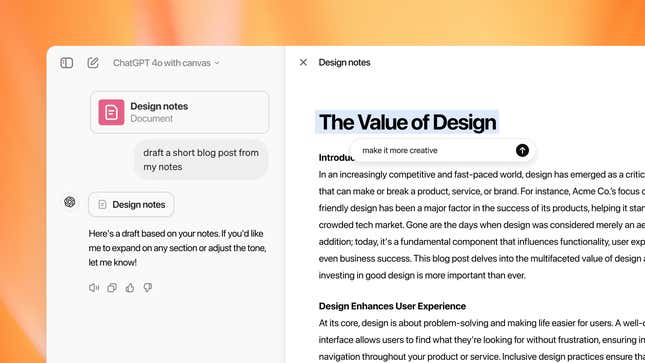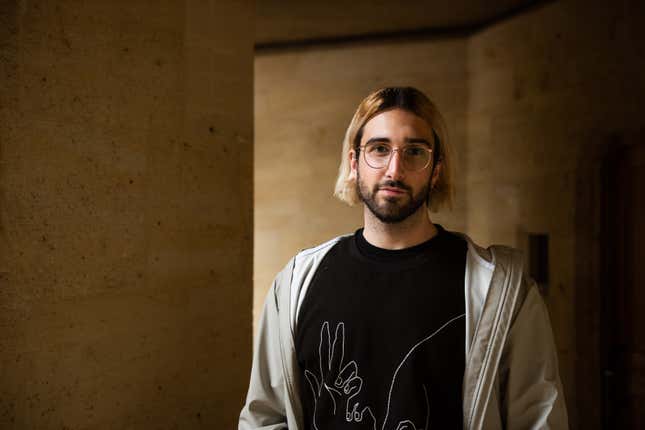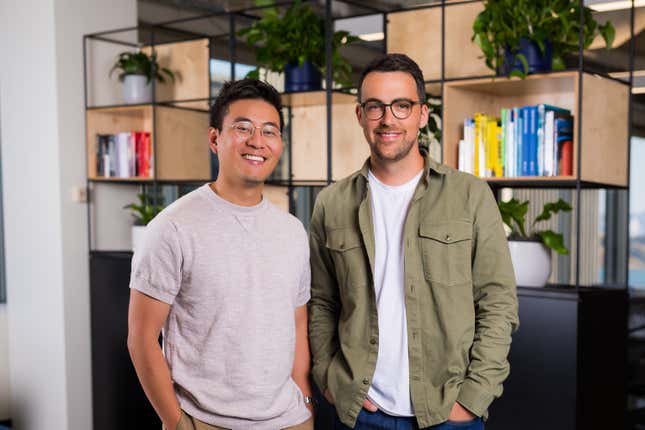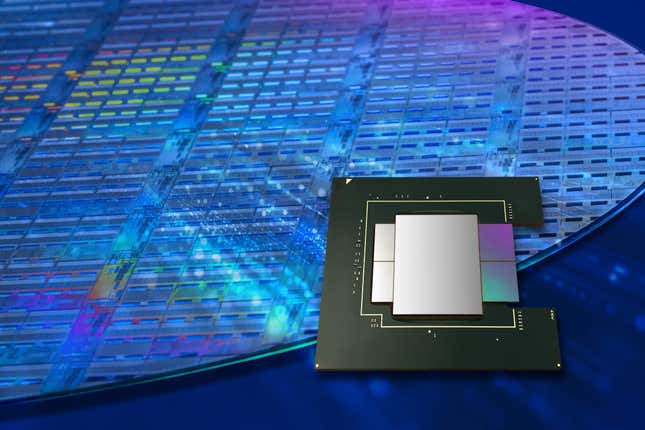
Each week, Quartz rounds up product launches, updates, and funding news from artificial intelligence-focused startups and companies.
Here’s what’s going on this week in the ever-evolving AI industry.

Each week, Quartz rounds up product launches, updates, and funding news from artificial intelligence-focused startups and companies.
Here’s what’s going on this week in the ever-evolving AI industry.

OpenAI made canvas, an interface to “collaborate” with ChatGPT on writing and coding projects, available to all web and Windows desktop users this week. The feature was made available in beta to ChatGPT Plus and Team users in October.
Now out of beta, canvas is built directly into OpenAI’s GPT-4o model, so it doesn’t need to be selected separately in ChatGPT’s model picker.
Other new features include running Python code directly in canvas for improvement suggestions and bug fixes, and compatibility with custom-made GPTs.

Cohere released Command R7B — the smallest, fastest, and last model in its R series of large language models (LLMs) for the enterprise — this week. Due to its compact size, the model can be served on low-end graphics processing units (GPUs), core processing units (CPUs), and a MacBook to accelerate production of AI applications.
In its class of open-weights models, Command R7B delivers state-of-the-art performance in real-world tasks such as reasoning and agentic behavior, according to the startup.
“The model is designed for developers and businesses that need to optimize for the speed, cost-performance, and compute resources of their use cases,” Cohere said.
Command R7B is available on the Cohere Platform and on HuggingFace.

Speak, a language learning AI startup, announced a $78 million Series C funding round this week. The deal, which values the company at $1 billion, was led by Accel, and included existing investors such as OpenAI Startup Fund and Khosla Ventures.
The Series C marks the AI language tutor’s second raise this year, and has doubled the startup’s valuation in six months.
“We’ve engineered a breakthrough in spoken fluency by combining our proprietary learning method with advanced AI that adapts to each user’s needs, making true fluency accessible to so many more people,” Connor Zwick, chief executive and co-founder of Speak, said in a statement. “So far this year, users have already spoken more than one billion sentences with Speak.”
Zwick said Speak plans to expand to more countries in 2025.

Ayar Labs, a startup that developed the first in-package optical I/O solution to replace electrical I/O in AI training and inferencing chips, announced a $155 million Series D funding round this week. The deal was led by Advent Global Opportunities and Light Street Capital, and included investments from AMD Ventures (AMD), Intel Capital (INTC), and Nvidia (NVDA). Ayar Labs is now valued at more than $1 billion.
The startup is changing the way data moves between chips with its I/O technology, which it says can “eliminate bottlenecks created by traditional copper interconnects and pluggable optics.” The funding will allow Ayar Labs to scale its technology, which “allows customers to maximize the compute efficiency and performance of their AI infrastructure, while reducing costs and power consumption, to dramatically improve profitability metrics for AI applications.”
“The leading GPU providers — AMD and NVIDIA — and semiconductor foundries — GlobalFoundries (GFS), Intel Foundry, and TSMC (TSM) — combined with the backing of Advent, Light Street, and our other investors underscores the potential of our optical I/O technology to redefine the future of AI infrastructure,” Mark Wade, chief executive and co-founder of Ayar Labs, said in a statement. “We are incredibly fortunate to have the backing of Light Street’s deep expertise in technology-specific investments as well as Advent’s robust private and growth equity background in this funding round.”

Gentrace, a developer platform that allows entire product teams to collaborate on AI testing and monitoring, announced an $8 million Series A funding round this week. The funding round was led by Matrix Partners, and brings the startup’s total funding to $14 million.
With the Gentrace platform, product managers, subject matter experts, designers, and quality assurance can all collaborate on evaluating AI model performance with engineering teams.
The startup also launched Experiments, a tool enabling collaborative large language model (LLM) testing. The tool allows teams to preview test outcomes before deploying models and anticipate errors, among other features.
“Generative AI represents a paradigm shift in software development, but the reality is there’s way too much noise and not enough signal on how to test and build them easily or correctly,” Doug Safreno, co-founder and chief executive of Gentrace, said in a statement. “We’re not just creating another dev tool — we’re reimagining how entire organizations can collaborate and build better LLM products.”

Crusoe, a vertically integrated AI infrastructure provider, announced a $600 million Series D funding round this week. The deal was led by Founders Fund and included Nvidia as an investor.
The startup provides cost-effective and “environmentally aligned” AI infrastructure by harnessing large-scale clean energy. Crusoe also builds AI-optimized data centers and has a development platform.
“We believe a new approach is needed to power the AI revolution,” Chase Lochmiller, chief executive and co-founder of Crusoe, said in a statement. “To reduce complexity, accelerate time-to-value, and support the most demanding AI solutions, customers need a vertically integrated approach. We are able to innovate faster and bring new, state-of-the-art capacity online in a fraction of the time compared to legacy cloud providers while delivering unmatched results for customers, making the promises of AI a reality.”
Crusoe also announced its Crusoe Cloud platform is generally available for AI and machine learning workloads.